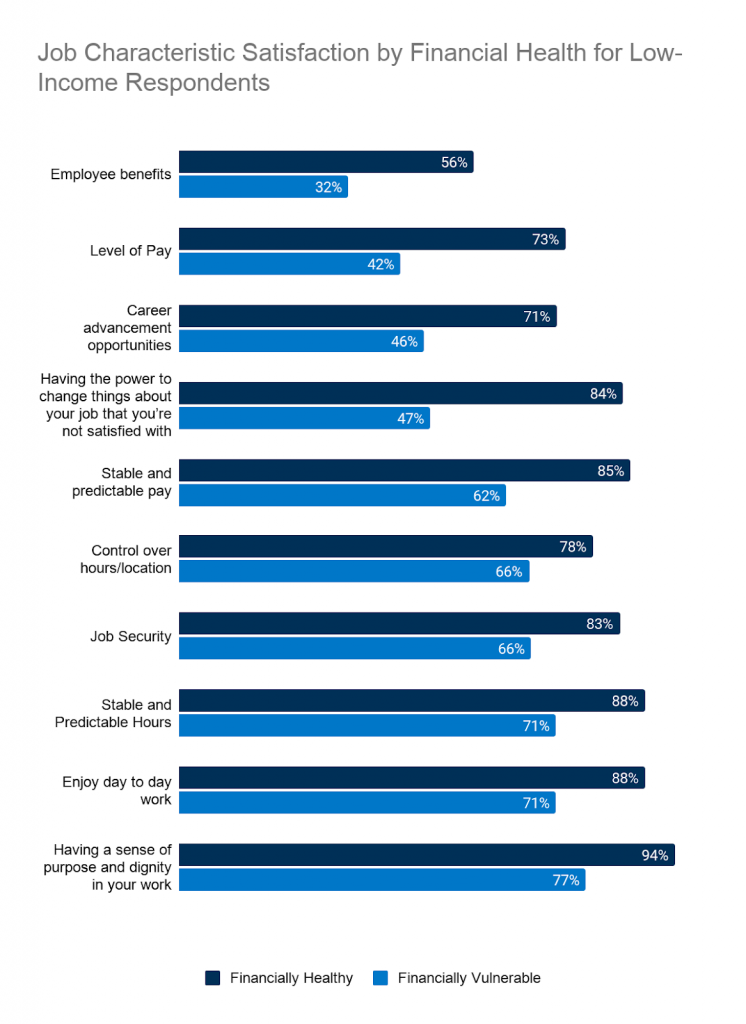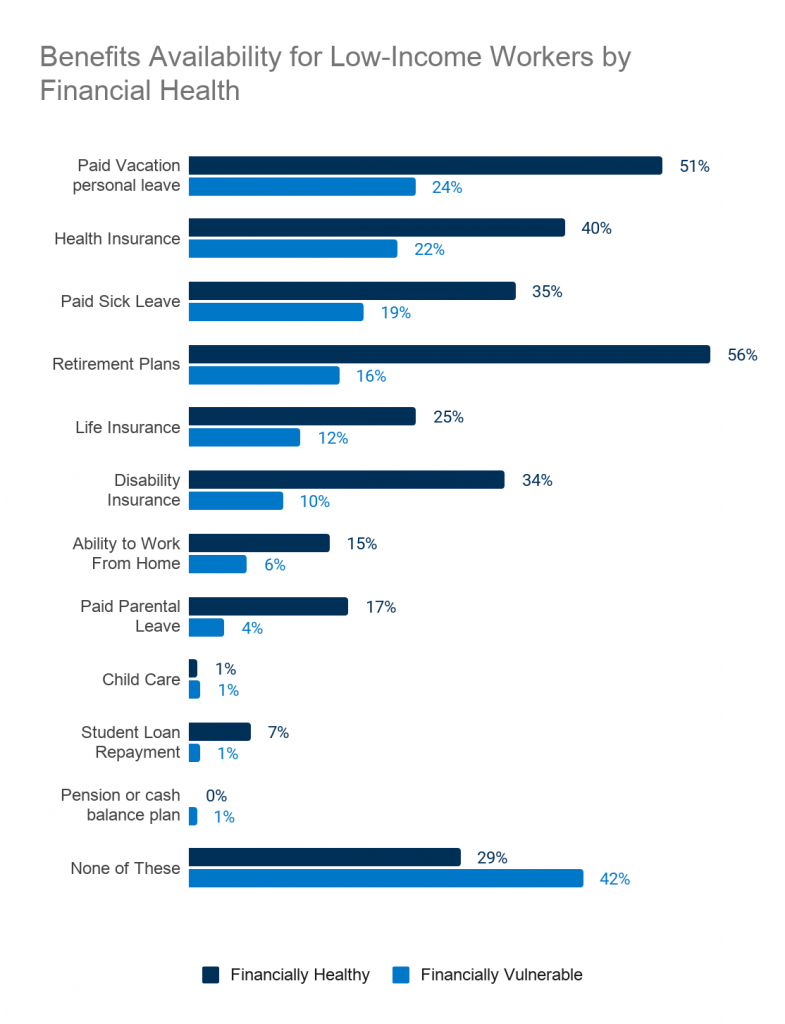This is a continuation of our Good Jobs Matter series, exploring “good jobs” and financial health. See the first blog in the series here.
Which job qualities are most important for improving a worker’s financial health? As it turns out, wages matter, but so do benefits.
For all workers, employee benefits are the job quality dimension most closely related to financial health out of 10 dimensions evaluated in a recent Gallup study. To find which of Gallup’s job quality dimensions are most associated with financial health, we ran a regression controlling for all other job characteristics, as well as demographic variables. The findings show that in order to improve employee financial health, employers should invest in benefits that support worker financial well-being.
Yet while employee benefits are clearly important for financial health, they are the job quality dimension rated lowest among low-income workers in the 2020 U.S. Financial Health Pulse® survey (Table 1).
We focus here specifically on low-income workers, defined as those with household incomes of less than $30,000, because they are the least Financially Healthy income segment. Low-income workers also tend to be Black, Latinx, and young, so improving their outcomes is also an equity issue for employers. These findings make it clear that there is more that employers could and should do to provide access to high-quality benefits that support the well-being of their most vulnerable workers.

Benefits Access Lagging for Low-Income Workers
Low-income workers’ dissatisfaction with their benefits is not surprising, as relatively few of them have access to benefits in the first place (Table 2). This is especially true of low-income workers who are Financially Vulnerable and most in need of financial support. Many of these workers are part-time and may simply not qualify for benefits because of their part-time status.
For example, only 16% of low-income workers who are Financially Vulnerable have access to retirement plans through their employers, making them less likely to be prepared for a financially secure future. Equally telling is the fact that only one in five (22%) Financially Vulnerable low-income workers has access to health insurance through their employer, which puts them at greater risk now in light of the current pandemic. In addition, fewer than 1% of low-income workers have childcare support from their employers, which can be critically important given growing childcare costs. Overall, 42% of Financially Vulnerable low-income workers reported not having access to any benefits through their employers.
It’s clear, then, that expanding low-income workers’ access to high-quality benefits, including those who work part-time, would have a significant impact on their financial resilience and overall well-being.

Low-Income Workers Want More From Their Employers
In addition to employee benefits, Financially Vulnerable low-income workers also report low levels of satisfaction with their pay, career advancement opportunities, and ability to change things about their jobs (Table 1).
Thus, improving access to benefits, raising wages, and providing career advancement opportunities and stability could dramatically improve low-income workers’ job quality and their financial health.
The Financial Health Network, in partnership with Target Foundation, is conducting research to improve the financial security of workers and expand economic opportunities for all.

